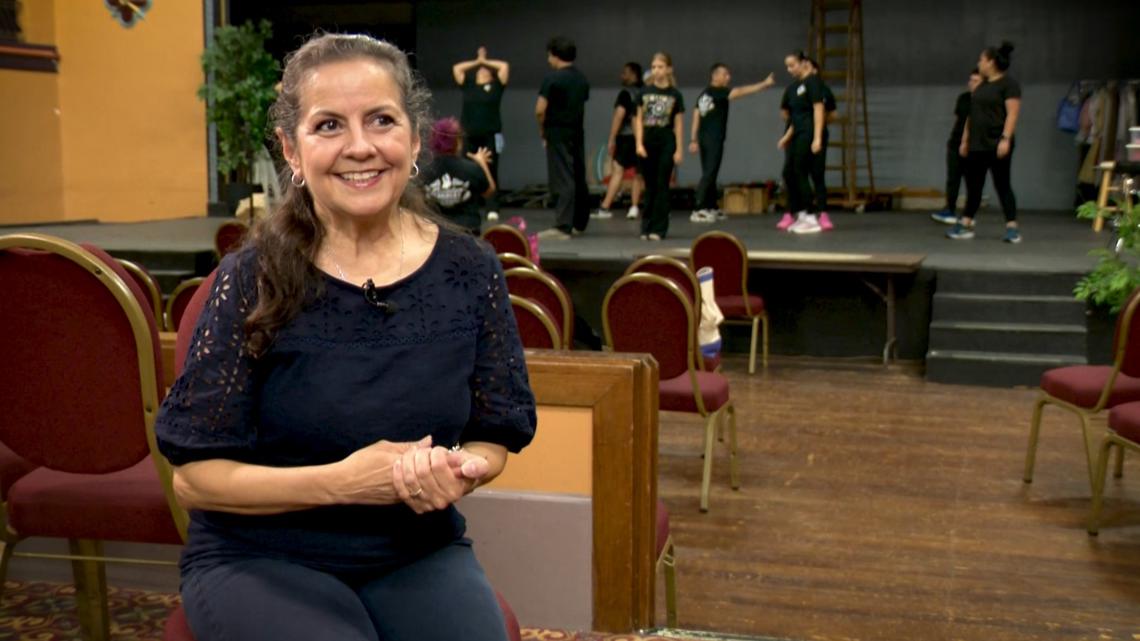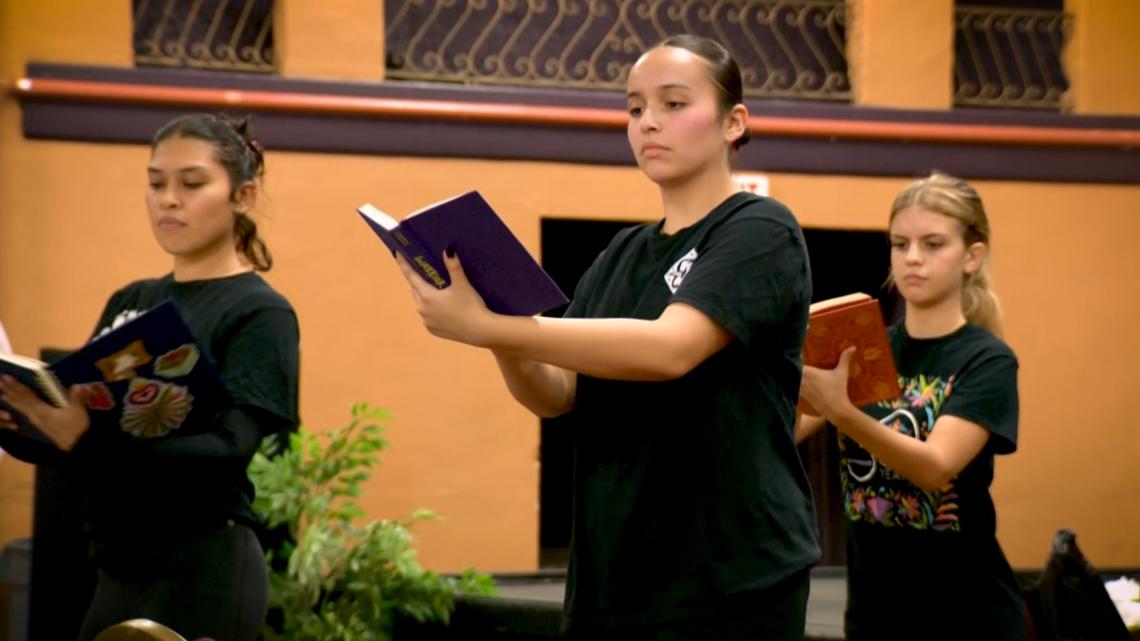“Nuestras Voces” uses folklórico and flamenco to spotlight five cultural and political icons, and the chapters they wrote for Texas history.
SAN ANTONIO — On a recent Monday evening, anyone strolling by the west side’s Historic Guadalupe Theater might’ve heard a chorus of feet tapping the stage to the rhythms of Mexican American history.
As Hispanic Heritage Month kicks off, the Guadalupe Dance Company is preparing to bring history to life—not through lectures or textbooks, but through the commanding sounds of traditional footwork and flamenco flair.
The third iteration of the San Antonio dance company’s show “Nuestras Voces: Stories of Resilience” takes the stage Saturday night at downtown’s Buena Vista Theater. The performance celebrates five influential Mexican Americans – Lydia Mendoza, Emma Tenayuca, Américo Paredes, Willie Velásquez and Jovita Idar – through distinct dance interpretations highlighting their stories and impact on Texas culture, politics and civil rights.
“It’s one thing to speak about your stories, but then to be able to express that through movement, you can come from a very vulnerable place,” said Belinda Menchaca, the company’s longtime director.
Menchaca, who has been with the Guadalupe Dance Company since its early days in the 1990s and now serves as education director, has helped shape its unique blend of Mexican folklórico and Spanish flamenco traditions. Originally trained in ballet, jazz and tap, Menchaca said Spanish dance has always been her foremost passion.
“It was always Spanish dance that I was attracted to,” she said.


With “Nuestras Voces,” the company continues its mission of telling stories that often go overlooked in mainstream historical narratives.
Dance, Menchaca says, allows the performers to wrap their audience in the sweep of the stories they’re exploring.
“Our goal has always been to tell our story. It’s the emotion that dancers bring to the stage—the emotion of helplessness, of the pain that they endured, of the injustice that they endured.”
Luis Garcia, a 25-year veteran of the company who began dancing while attending the University of Texas at Austin, choreographed the segment honoring Paredes. A Brownsville-born author who died in 1999 at the age of 83, he’s considered a pioneer in Chicano literature.
According to the Texas State Historical Association, it was Paredes’ early writings on everything from border life to backyard barbecues that “helped spark the Chicano literary movement.”
“I believe he’s known as the grandfather of Chicano literature,” Garcia said. “They don’t have huge chapters in the history books here, and we wanted to call attention to them.”


At first, Garcia was hesitant about trying Mexican folklórico when he was in college. He recalls walking through a campus celebration complete with el grito and live mariachi music; the experience made him curious.
When he went to rehearsal for the first time, he realized it could become a way to personally connect to his heritage.
“Oh my god, I just fell in love with the music and the rehearsal process and the steps—the zapateado, what we call the footwork,” he said. “It just called to me without me realizing that it was calling to me.”
The Saturday production will feature about 25 dancers spanning generations, including young performers from the Guadalupe Dance Academy, which begins educating dancers when they’re as young as 4. Menchaca said the work of celebrating Mexican American culture is ongoing—and increasingly vital.
“Nothing changes for us,” she said. “We continue to do the work that we do, we continue to make certain that our stories are heard—maybe just a little bit louder.”
“Nuestras Voces” will take the stage at 7:30 p.m. Saturday at the Buena Vista Theater at UTSA’s downtown campus (501 W. Cesar E. Chavez Blvd.). Find ticket information here.
